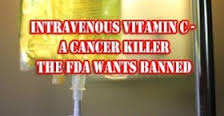
Breaking News
 [Off Grid Build] DIY Rotary Sieve (Trommel) For Separating Stone from Earth (Making Gravel)
[Off Grid Build] DIY Rotary Sieve (Trommel) For Separating Stone from Earth (Making Gravel)
 Exposing the Venezuela Regime Change Scam - with Richard Grove
Exposing the Venezuela Regime Change Scam - with Richard Grove
 California just passed a shocking law to grab your idle Bitcoin
California just passed a shocking law to grab your idle Bitcoin
 Scientists say recent advances in Quantum Entanglement...
Scientists say recent advances in Quantum Entanglement...
Top Tech News
 Kawasaki's four-legged robot-horse vehicle is going into production
Kawasaki's four-legged robot-horse vehicle is going into production
 The First Production All-Solid-State Battery Is Here, And It Promises 5-Minute Charging
The First Production All-Solid-State Battery Is Here, And It Promises 5-Minute Charging
 See inside the tech-topia cities billionaires are betting big on developing...
See inside the tech-topia cities billionaires are betting big on developing...
 Storage doesn't get much cheaper than this
Storage doesn't get much cheaper than this
 Laser weapons go mobile on US Army small vehicles
Laser weapons go mobile on US Army small vehicles
 EngineAI T800: Born to Disrupt! #EngineAI #robotics #newtechnology #newproduct
EngineAI T800: Born to Disrupt! #EngineAI #robotics #newtechnology #newproduct
 This Silicon Anode Breakthrough Could Mark A Turning Point For EV Batteries [Update]
This Silicon Anode Breakthrough Could Mark A Turning Point For EV Batteries [Update]
 Travel gadget promises to dry and iron your clothes – totally hands-free
Travel gadget promises to dry and iron your clothes – totally hands-free
 Perfect Aircrete, Kitchen Ingredients.
Perfect Aircrete, Kitchen Ingredients.
 Futuristic pixel-raising display lets you feel what's onscreen
Futuristic pixel-raising display lets you feel what's onscreen
FDA quietly bans powerful life-saving intravenous Vitamin C

(Natural News) It would be naive to think that the FDA endeavors to protect the public's health as its primary focus. Indeed, that would be a conflict of interest, as it serves its master, the pharmaceutical industry. Has the Food and Drug Administration engineered a shortage of intravenous vitamin C as part of an overall attack on natural and non-toxic approaches to healing that compete with prescription drugs? An analysis by Natural Blaze would suggest that the answer is yes.
Natural Blaze claims that a critical shortage of IV bags in general followed an FDA ban on the mass production of intravenous vitamin C. The FDA limited the availability of IV-C and the pharmaceutical industry halted production of injectable vitamins and minerals, after a 60 minute story about the miraculous recovery of a swine flu patient on life support. Because of the shortage of IV-C, doctors called upon compounding pharmacies to produce it. But the FDA began to limit compounding pharmacies after injectable steroids produced by the New England Compounding Center were contaminated with a fungus that caused a deadly outbreak of meningitis. Here is an example of an entire industry being punished for the dubious practices of one compounding pharmacy.
Try and follow this convoluted story: Doctors began to source NECC for its more expensive product because cheaper generic versions were in short supply. But it was the FDA's increased inspection of drug factories that disrupted the supply chain in the first place. So the meningitis deaths were in part caused by the onerous actions of the FDA.
Natural Blaze reports, "… without anyone noticing, and by many indirect means of banning production of the bags or shutting down those doing the production of the bags and the injectable vitamins and minerals, access to IV solutions for innumerable treatments for diseases, have gone into critical shortage."
Vitamin C and the Big C
Could the shortage of IV-C be part of an effort to limit alternative cancer therapies?
DrWhitaker.com states, "… vitamin C is a potent antioxidant that has the power to boost immune function, increase resistance to infection, and protect against a wide range of diseases. But there's an entirely different and largely unknown role of vitamin C, and that is its ability—when administered in very high doses by intravenous (IV) infusions—to kill cancer cells. … Best of all—and unlike virtually all conventional chemotherapy drugs that destroy cancer cells—it is selectively toxic. No matter how high the concentration, vitamin C does not harm healthy cells."
Dr. Whitaker continues:
"The only way to get blood levels of vitamin C to the concentrations required to kill cancer cells is to administer it intravenously. … For example, 10 g of IV vitamin C raises blood levels 25 times higher than the same dose taken orally, and this increases up to 70-fold as doses get larger."
Choose health, choose life
When the human body is challenged by pathogens or needs to heal from injuries or surgery, its requirement for vitamin C increases considerably. If hospitals routinely administered intravenous ascorbic acid, a proven and inexpensive treatment, patient outcomes would improve. When one weighs the risk of infection from deadly superbugs in hospitals today, IV vitamin C as a preventative safeguard makes all the more sense.
To learn how to secure IV-C in advance of a hospital stay for yourself or a family member, check out this very useful advice at DoctorYourself.com. You will learn how to deal with objections from physicians and hospital administrators regarding this "alt-health" remedy. It will require some moxie, but doing so may save a life.



